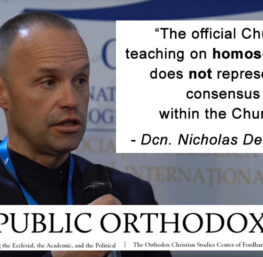CNSNews.com | Marc Morano | Dec. 7, 2007
A Science Magazine essay claiming there is a “scientific consensus” about human-caused “global warming” was ridiculed Monday by a British scientist, who compared such a “consensus” to the near-unanimous elections that existed in the old Soviet Union.
On Monday, Benny Peiser, a United Kingdom social anthropologist, called the Dec. 3 essay, “The Scientific Consensus on Climate Change,” a “disturbing” study.
“A one-hundred-percent record of ‘scientific consensus’ on anthropogenic climate change would be a sensational finding indeed. In fact, such a total result would be even more remarkable than any ‘consensus’ ever achieved in Soviet-style elections,” Peiser noted sarcastically.
The Science Magazine essay analyzed 928 abstracts containing the keyword “climate change,” all published in peer-reviewed scientific journals between 1993 and 2003. The essay found that not a single one of the studies showed climate change to be naturally occurring.
The essay was written by University of California professor Naomi Oreskes, a member of the University’s Department of History and Science Studies Program.
According to Oreskes, “None of these (928) papers argued that [current climate change is natural].”
“This analysis shows that scientists publishing in the peer-reviewed literature agree with [United Nations] IPCC (Intergovernmental Panel on Climate Change), the National Academy of Sciences, and the public statements of their professional societies,” Oreskes wrote.
“Politicians, economists, journalists, and others may have the impression of confusion, disagreement, or discord among climate scientists, but that impression is incorrect,” she added.
“The question of what to do about climate change is also still open. But there is a scientific consensus on the reality of anthropogenic (human caused) climate change. Climate scientists have repeatedly tried to make this clear. It is time for the rest of us to listen,” concluded Oreskes.
But Peiser, a senior lecturer in Social Anthropology & Sport Sociology at Liverpool John Moores University and the editor of of CCNet (Cambridge Conference Network) webzine, labeled Oreskes’ essay a “disturbing article.
“Whatever happened to the countless research papers published in the last ten years in peer-reviewed journals that show that temperatures were generally higher during the Medieval Warm Period than today, that solar variability is most likely to be the key driver of any significant climate change and that the methods used in climate modeling are highly questionable?” Peiser asked.
“Given the countless papers published in the peer-reviewed literature over the last ten years that implicitly or explicitly disagree with the hypothesis of anthropogenic global warming, one can only conclude that all of these were simply excluded from the [Science Magazine] review. That’s how it arrived at a 100 percent consensus!” he added.
According to Peiser, Oreskes’ assertion that there is a 100 percent consensus about the issue is not backed by science.
“Even [former Soviet dictator Joseph] Stalin himself did not take consensus politics to such extremes,” Peiser explained. “In the Soviet Union the official ‘participation rate’ was never higher than 98-99 percent.
“So how did the results published in Science achieve a 100 percent level of conformity? Regrettably, the article does not include any reference to the [unpublished?] study itself, let alone the methodology on which the research was based. This makes it difficult to check how Oreskes arrived at the truly miraculous results,” he added.
‘Easily debunked falsehood’
Chris Horner, a senior fellow at the free market environmental group Competitive Enterprise Institute, also criticized the idea that there is a “scientific consensus” on “global warming.”
“Publishing such an easily debunked falsehood in an erstwhile reputable, peer-review publication (Science Magazine) demonstrates either a new low in desperation or a new generation believing there are no checks and therefore no limits,” Horner told CNSNews.com.
After all, past nonsense brought increasing taxpayer funding for decades. What would make them think they can’t just make things up?” Horner added.
Iain Murray, a senior fellow in International Policy at the Competitive Enterprise Institute, wrote a letter to the editor of Science Magazine questioning why the study was even published.
“I was surprised to see Science publish an article crowing over the existence of a scientific consensus on global warming and then advancing the non-sequitur that political action is therefore needed. Neither is a point worthy of consideration in an objective, scientific journal,” Murray wrote in his letter to the editor, dated Dec. 6.
“…the message of the article — that politicians must act on the basis of the science — is clearly a political point rather than a scientific one,” Murray continued.
“…the argument advanced by the author that ‘our grandchildren will surely blame us if they find that we understood the reality of anthropogenic climate change and failed to do anything about it’ is barely economically literate and has no place in a scientific journal,” he added.
. . . more



